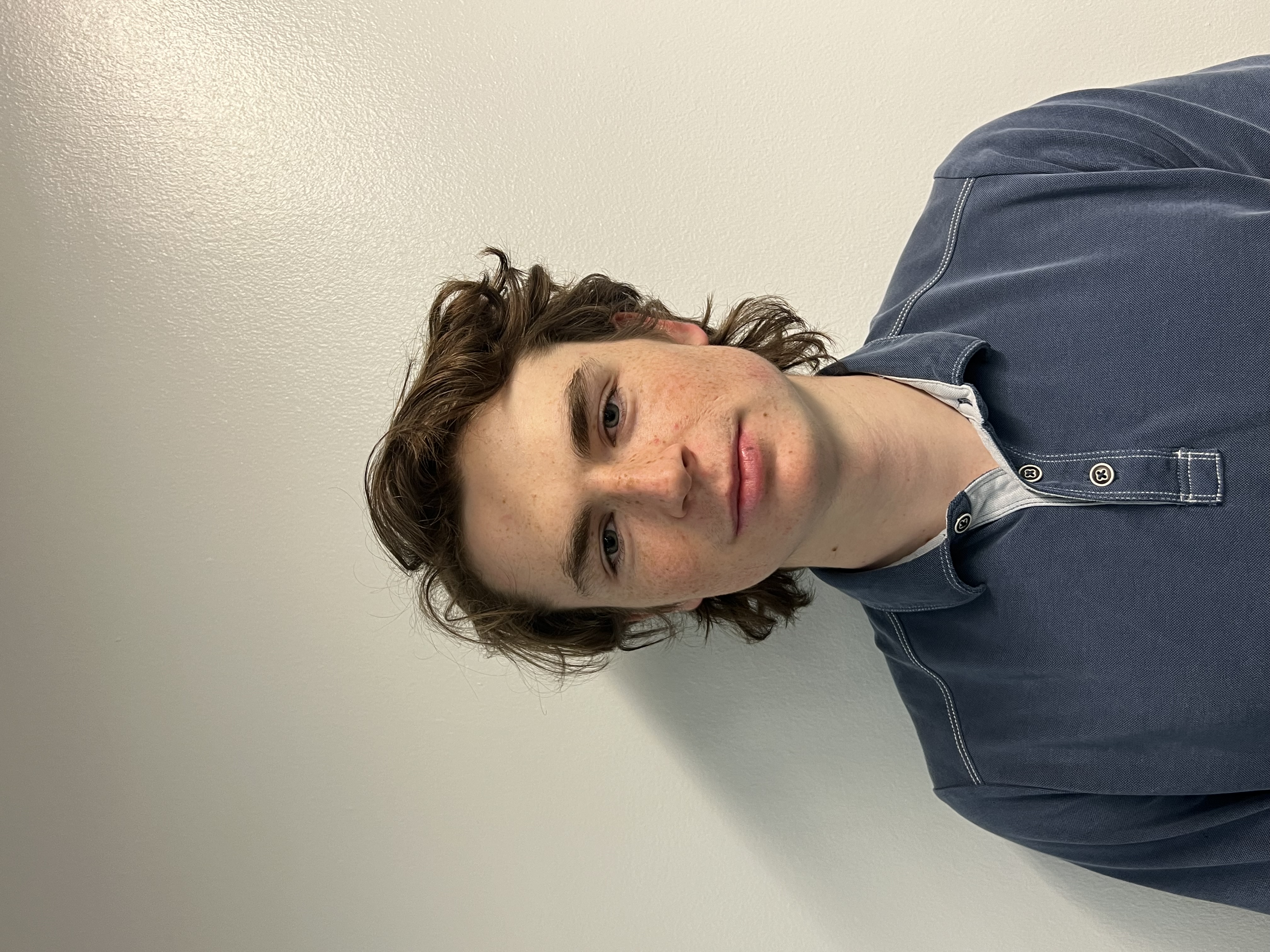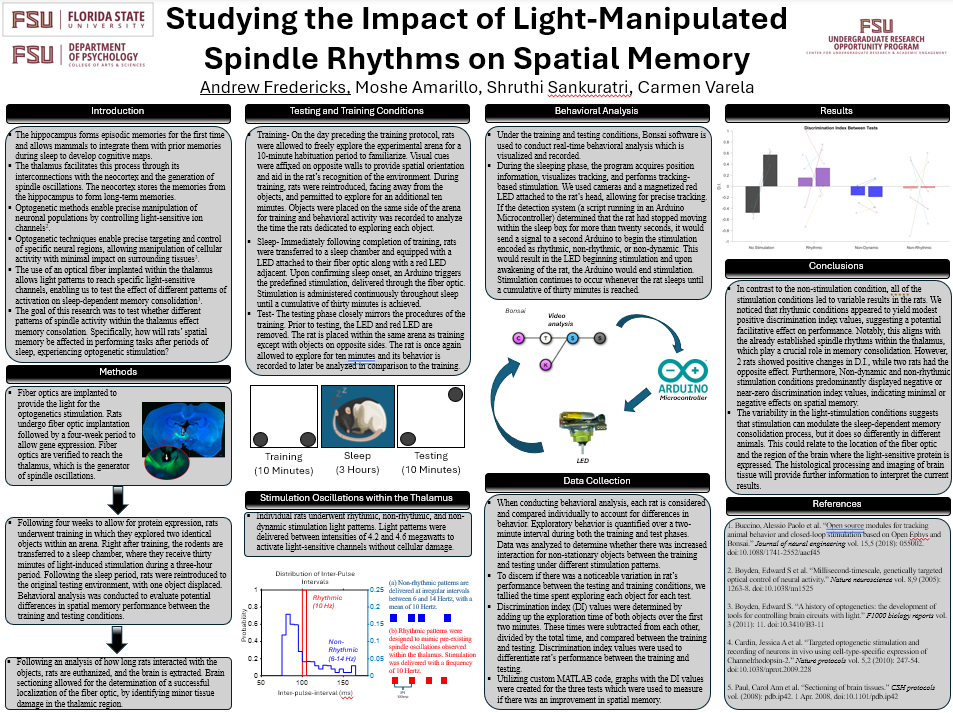Research Symposium
25th annual Undergraduate Research Symposium, April 1, 2025
Andrew Fredericks Poster Session 3: 1:45 pm - 2:45 pm/ Poster #10

BIO
My name is Andrew Fredericks, and I am a second-year undergraduate from Tampa, Florida. I am majoring in biochemistry with the intention of going to graduate school. I am interested in chemistry and the cellular mechanisms underlying behavior and memory. My current research project explores the intersection of sleep and memory utilizing behavioral training in rats and optogenetic methods. Aside from my roles in the lab, I serve on the board for Relay for Life at Florida State and am always looking for opportunities to engage with the campus community, expand my research experience, and grow as a student.
Studying the Impact of Light-Manipulated Spindle Rhythms on Spatial Memory
Authors: Andrew Fredericks, Carmen VarelaStudent Major: Biochemistry
Mentor: Carmen Varela
Mentor's Department: Psychology Mentor's College: Arts and Sciences Co-Presenters:
Abstract
The hippocampus forms episodic memories for the first time and allows mammals to integrate them with prior memories during sleep. The thalamus facilitates this process through its interconnections with the neocortex and the generation of spindle oscillations. Using optogenetic methods, we were able to manipulate spindle oscillations and study the effects on spatial memory. Specifically, this study utilized behavioral training, testing, and analysis to determine how different spindle oscillations influenced spatial memory. This was performed by implanting a fiber optic into a rat's thalamus, which was coated in a vector containing a gene making neural cells light-sensitive. Through the fiber optic, light was delivered as rhythmic, non-rhythmic, and non-dynamic stimulation. Stimulation was only delivered during periods of sleep between different tasks. Results indicated that rhythmic conditions appeared to yield modest positive discrimination index values, suggesting a potential facilitative effect on performance. Furthermore, non-dynamic and non-rhythmic stimulation conditions predominantly displayed negative or near-zero discrimination index values, indicating minimal or negative effects on spatial memory. The future of this research aims to contribute to developing therapeutic strategies for enhancing memory and treating memory-related disorders.
Keywords: Psychology, Memory, Neuroscience, Optogenetics, Thalamus

